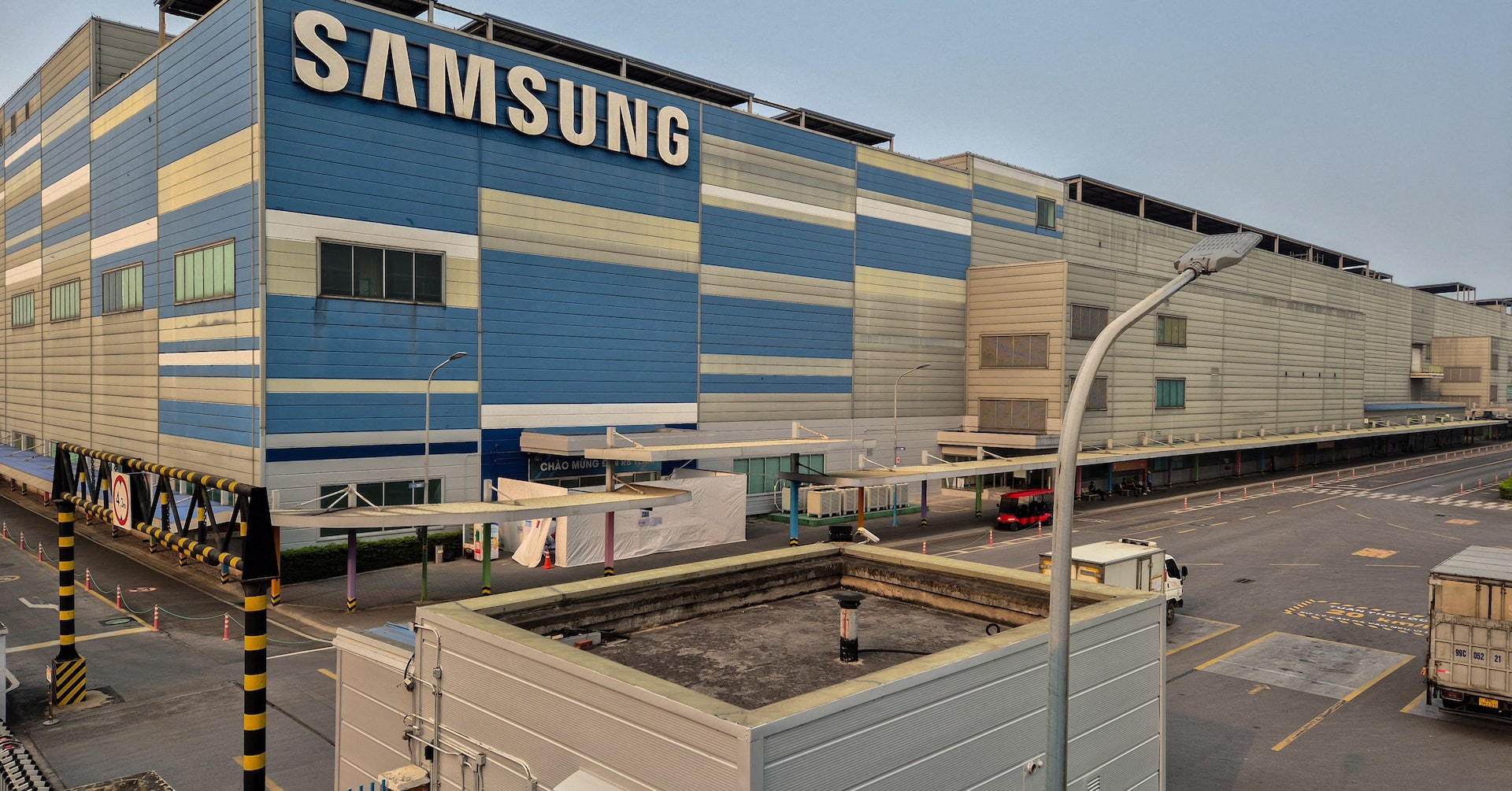Mexico Manufacturing Shield: Samsung's TV Division Dodges US Tariff Bullet
Business
2025-04-07 04:23:18Content

Samsung Electronics appears poised to weather potential U.S. trade challenges more effectively than its competitors, thanks to a strategic manufacturing approach. In a recent statement, a company executive revealed that the tech giant's television production is largely insulated from potential tariff impacts, primarily because its TV manufacturing is concentrated in Mexico.
By positioning its production facilities in Mexico, Samsung has strategically positioned itself to minimize potential trade-related disruptions. This geographical manufacturing strategy provides the company with a significant competitive advantage, potentially shielding it from the economic pressures that might affect other electronics manufacturers more severely.
The executive's comments underscore Samsung's proactive approach to global trade dynamics, demonstrating the company's ability to navigate complex international business landscapes. With its robust manufacturing footprint in Mexico, Samsung seems well-prepared to maintain its strong market position in the television sector, even amid uncertain trade environments.
Samsung's Strategic Manufacturing Triumph: Navigating Trade Tensions with Mexican Production Prowess
In the complex landscape of global electronics manufacturing, Samsung Electronics emerges as a strategic powerhouse, demonstrating remarkable adaptability in the face of challenging international trade dynamics. The company's innovative approach to production location has positioned it uniquely in the competitive television market, potentially insulating it from the economic pressures of U.S. trade policies.Mastering Global Manufacturing Resilience in Uncertain Times
The Mexican Manufacturing Advantage
Samsung's television production strategy represents a masterclass in geopolitical risk management. By establishing robust manufacturing capabilities in Mexico, the company has effectively created a strategic buffer against potential U.S. tariff complications. This geographical positioning allows Samsung to leverage proximity to the North American market while simultaneously minimizing potential economic disruptions. The decision to concentrate television production in Mexico is not merely a tactical response but a carefully calculated long-term strategic move. Mexican manufacturing facilities offer Samsung significant cost advantages, including lower labor expenses, proximity to key markets, and favorable trade agreements that enable more flexible and responsive production cycles.Trade Policy Navigation and Economic Resilience
The intricate landscape of international trade policies demands sophisticated corporate strategies, and Samsung has demonstrated exceptional acumen in this domain. By diversifying its manufacturing footprint, the company has created a robust mechanism to mitigate potential economic risks associated with geopolitical tensions and protectionist trade measures. Mexico's strategic importance in Samsung's global manufacturing ecosystem cannot be overstated. The country's well-developed manufacturing infrastructure, skilled workforce, and established trade relationships provide Samsung with a competitive edge that extends beyond mere cost considerations. This approach enables the company to maintain production flexibility and responsiveness in an increasingly complex global economic environment.Technological Innovation and Production Flexibility
Samsung's manufacturing strategy transcends traditional geographical constraints, representing a sophisticated approach to global production. The company's ability to rapidly adapt its manufacturing processes and locations demonstrates a level of organizational agility that distinguishes it from competitors who might be more rigidly structured. The Mexican production facilities are not merely alternative manufacturing sites but represent sophisticated technological ecosystems. These locations are equipped with advanced manufacturing technologies, ensuring that Samsung can maintain its reputation for high-quality electronic products while simultaneously optimizing production costs and mitigating potential trade-related challenges.Economic and Geopolitical Implications
The broader implications of Samsung's manufacturing strategy extend far beyond the television market. By establishing a robust presence in Mexico, the company serves as a potential model for multinational corporations seeking to navigate the complex terrain of international trade regulations. This approach highlights the increasing importance of geographical diversification in modern manufacturing strategies. Companies that can effectively distribute their production capabilities across multiple jurisdictions are better positioned to withstand economic uncertainties and maintain competitive advantages in rapidly evolving global markets.Future Outlook and Strategic Positioning
Samsung's current manufacturing approach suggests a forward-looking strategy that anticipates and adapts to potential economic challenges. The company's investment in Mexican production facilities represents a long-term commitment to flexibility, efficiency, and strategic resilience. As global trade dynamics continue to evolve, Samsung's approach offers valuable insights into effective corporate strategies for managing international manufacturing complexities. The company's ability to transform potential challenges into strategic opportunities demonstrates a sophisticated understanding of the global economic landscape.RELATED NEWS
Business

Local Wiggins Enterprise Scores Major Funding Boost from Regional Investors
2025-04-24 01:02:31
Business

Deadly Compromise: Ukraine Exposes 120,000 Faulty Mortar Rounds Risking Soldier Lives
2025-04-30 04:21:05
Business

Dining Dilemma: Small Businesses Wage War Against Brazen Restaurant Theft
2025-04-08 08:00:47





